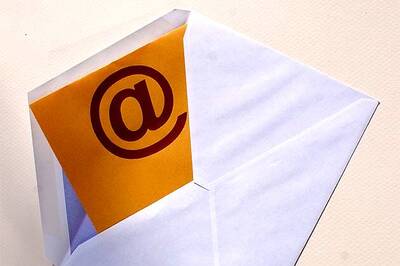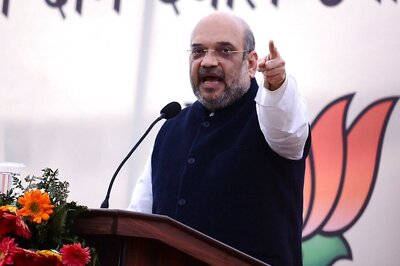
views
TAIPEI, Taiwan: Taiwan on Thursday condemned recent Chinese military activity after Beijing sent two military surveillance planes toward the island for three straight days, calling it a deliberate provocation.
Tensions have risen in the Taiwan Strait as the U.S. has stepped up its official engagement with the self-ruled island that China considers part of its national territory.
On Monday, Tuesday and Wednesday, China sent two planes into Taiwan’s air defense identification zone, according to Taiwan’s Ministry of National Defense. In response, the Taiwanese side dispatched air patrols, the ministry said.
We oppose China using military force against Taiwan, deliberately violating Taiwans naval and airspace safety and damaging the status quo, added Chiu Chui-Cheng, deputy minister at Taiwan’s Mainland Affairs Council. Our government will continue to cooperate with countries with similar values.
Last week, China sent a total of 37 warplanes, including bombers and fighter jets, across the Taiwan Strait in a warning as a high-level U.S. State Department official visited the island. The Taiwanese defense ministry said the planes crossed the midline of the Taiwan Strait.
The midline has acted as an unofficial buffer zone between China and Taiwan for decades, in what Taiwans Mainland Affairs Council on Thursday called a tacit agreement that has kept the peace.
Chinese foreign ministry spokesman Wang Wenbin on Monday denied the existence of any midline, saying that Taiwan is part of China. He also warned that China would retaliate for the U.S. visit. We will take countermeasures, including against relevant individuals,” he said.
Taiwanese President Tsai Ing-wen has remained defiant, visiting a military base on Tuesday and encouraging the personnel, in particular pilots and crew.
Taiwanese foreign minister Joseph Wu said in July that Chinese military exercises have increased in frequency and become virtually a daily occurrence.”
China has increased diplomatic and military pressure on Tsais government over her refusal to agree to Chinas insistence that the island be considered part of Chinese territory. The vast majority of Taiwanese reject the prospect of political union with China under the one country, two systems framework used for Hong Kong.
Following Tsai’s election in 2016, China cut off contact with the Taiwanese government and has sought to isolate it, siphoning off the island’s diplomatic allies while ratcheting up political, military and economic pressure.
Disclaimer: This post has been auto-published from an agency feed without any modifications to the text and has not been reviewed by an editor




















Comments
0 comment